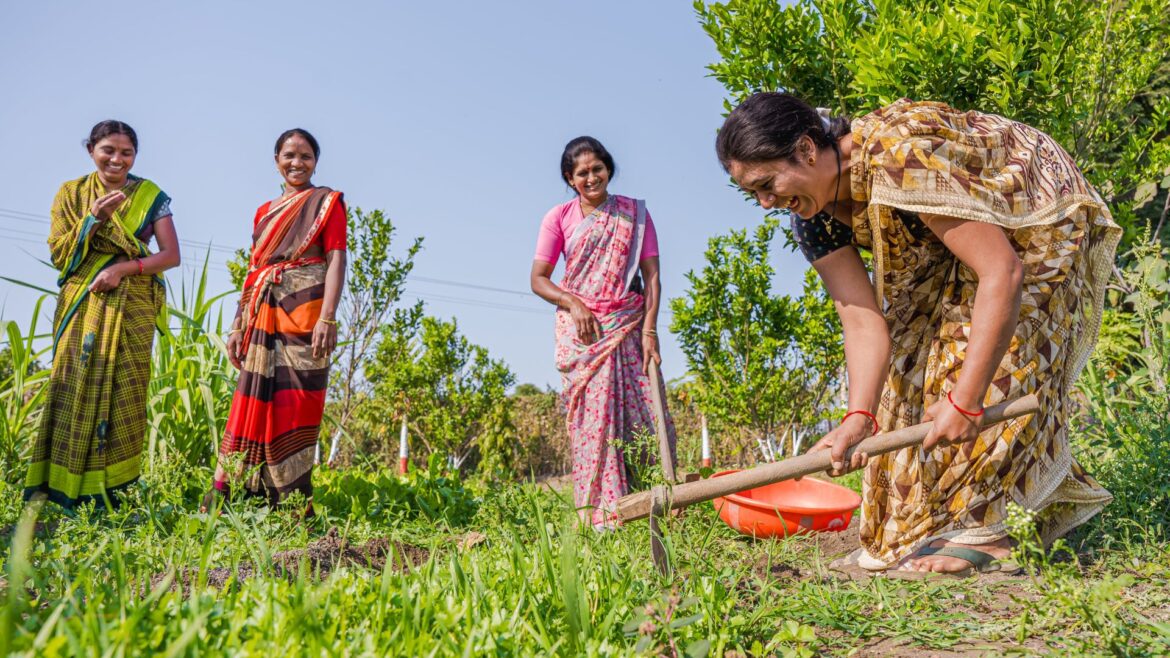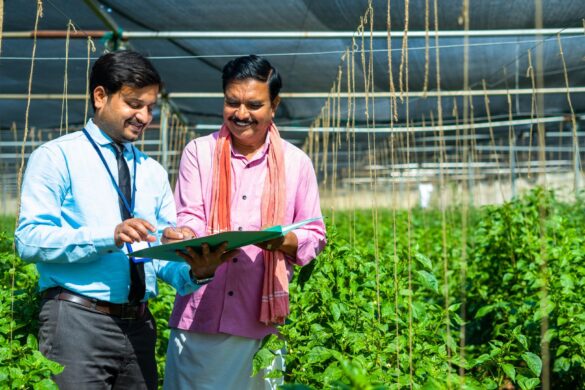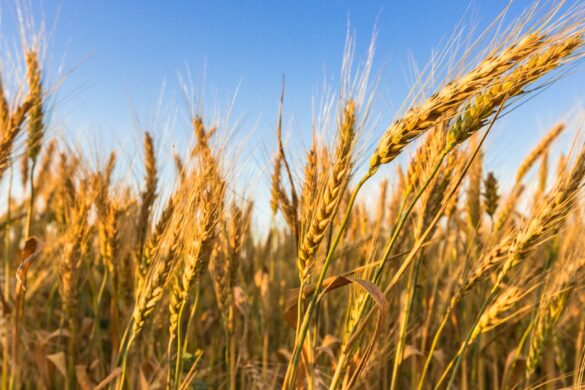Table of Contents
Natural Farming is a sustainable agricultural practice that emphasizes the use of natural processes, eliminating chemical fertilizers, pesticides, and synthetic additives.
India was often called the ‘Sone ki Chidia’ or the ‘Golden bird’. This was due to India traditionally being an agrarian economy where the golden crops flourished. Natural farming is rooted in the traditional agricultural wisdom of India.
In India, farming was practiced using organic methods and substances like crop rotation, intercropping, organic manure and more. However, with the Green Revolution there was a dramatic shift towards high-yielding varieties of crops that required intensive use of chemical fertilizers, pesticides, and synthetic growth agents. This was driven by the need to achieve food security, boost productivity, and meet the rapidly growing demands of a growing population.
While this chemical-intensive approach has succeeded in increasing agricultural output significantly, it has come at a high cost to both the environment and public health. Excessive use of fertilizers and pesticides has begun to detoriate soil, contaminate water resources, reduce biodiversity, and affect human health. Issues such as cancers, hormonal imbalances, and other ailments, are increasingly being linked to the consumption of chemically contaminated food.
The negative consequences of chemical usage in agriculture has prompted a re-evaluation of farming practices, both in India and globally. Consumers are becoming more aware of the dangers of pesticide-laden agricultural produce, and there is increasing demand for organic, chemical-free food. Governments and institutions are also supporting this transition, offering incentives and promoting policies that encourage farmers to adopt natural farming practices.
Principles of Natural Farming
1. No Chemical Inputs: It discourages the use of chemical fertilizers, pesticides, herbicides, and focuses on using organic matter available in the farm ecosystem.
2. Use of Biological Resources: The approach relies on cow dung, urine, and plant-based biofertilizers as nutrients.
3. Soil Health Restoration: By preserving soil structure and microbiota, natural farming aims to restore and maintain soil fertility.
4. Crop Diversity and Integration: Emphasizes mixed cropping, crop rotation, and intercropping to enhance nutrient cycling and reduce pest outbreaks.
5. Minimal Disturbance: Natural farming discourages plowing or tilling, focusing instead on preserving soil structure to maintain natural microbial life and prevent soil erosion.
Key Practices in Natural Farming in India
1. Jivamrita: A mixture made from cow dung, cow urine, jaggery, and pulse flour that acts as a natural growth-promoting solution and microbial stimulant.
2. Bijamrita: A seed treatment mixture made using Cow dung, cow urine, water, lime and soil is used to protect seeds from pests and promote healthy growth.
3. Mulching and Cover Crops: Using organic residues to cover soil and prevent weed growth while preserving moisture and nutrients.
State of Natural Farming in India
Natural farming has seen a significant push in India in recent years, largely due to the government’s initiatives and increasing awareness among farmers about sustainable agriculture. The following summarizes the state of natural farming across the country:
1. Government Initiatives: Natural farming in India has been promoted through flagship programs like the Bharatiya Prakritik Krishi Paddhati (BPKP) under the Pradhan Mantri Krishi Sinchai Yojana (PMKSY), and the Paramparagat Krishi Vikas Yojana (PKVY). These programs aim to boost organic and natural farming by providing technical and financial support to farmers.
2. Adoption in States: States like Andhra Pradesh, Gujarat, Himachal Pradesh, Madhya Pradesh, and Maharashtra have been at the forefront of promoting natural farming practices. Andhra Pradesh is a notable example with its Zero Budget Natural Farming (ZBNF) program, which aims to transition millions of farmers towards completely natural agricultural methods.
3. Current Adoption: As of recent reports, millions of farmers across various states are in different stages of adopting natural farming, with approximately 4 million hectares of land under natural farming practices in India. The movement is gaining popularity, especially among small and marginal farmers who are looking for ways to reduce input costs. Ministry of Rural Development organises campaigns on regular basis. One example is National campaign on Integrated Crop Management under Natural Farming, being held from 5th to 18th October 2024.
Why Natural Farming Must be Promoted in India
1. Extensive use of chemical fertilizers and pesticides, lead to soil degradation, groundwater contamination, and reduction in biodiversity. Natural farming helps reverse these trends by enhancing soil fertility, maintaining ecological balance, and reducing pollution.
2. Natural farming practices improve resilience against extreme weather conditions. Healthy soils can store more water, making crops less vulnerable during droughts or heavy rainfall.
3. Natural farming eliminates the need for costly fertilizers and pesticides, allowing farmers to cut down significantly on their costs.
4. Soil degradation is a major concern in India, with many regions facing declining soil fertility. Natural farming practices help restore and enhance the soil’s biological activity, structure, and organic matter content, ultimately improving crop productivity and nutritional quality.
5. Natural farming produces nutrient-rich crops without chemical residues, resulting in healthier food for consumers.
6. Given the increasing consumer demand for chemical-free, organic products, natural farming creates better market opportunities for farmers.
7. Exposure to pesticides is associated with several health issues, both for farmers and consumers. By avoiding chemicals, natural farming safeguards the health of agricultural workers and provides safer food for consumers.
Challenges in Adoption of Natural Farming
There are concerns about reduced yields during the initial years of transitioning from chemical-intensive to natural farming. Many farmers lack the knowledge and technical support needed to implement natural farming practices effectively. While demand for organic produce is increasing, establishing reliable market linkages and ensuring fair prices for farmers is still a challenge.
Promoting natural farming is crucial to ensuring food security, protecting natural resources, and improving farmer livelihoods, making it an essential part of India’s agricultural future.










